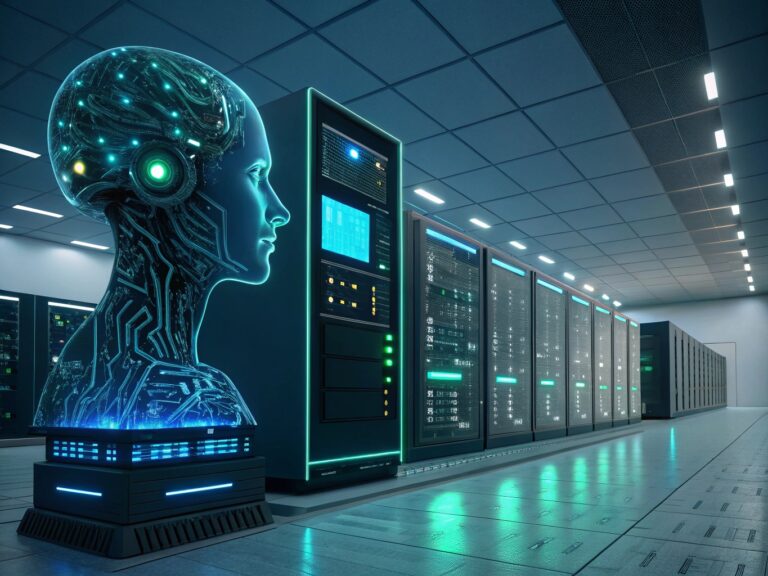The timeline for achieving Artificial General Intelligence (AGI) has undergone a drastic acceleration, with industry leaders revising their predictions significantly downward. SoftBank CEO Masayoshi Son’s announcement that Artificial General Intelligence will arrive “much earlier” than his previous two-to-three-year prediction is a nice example of this sudden shift in timeline expectations. This acceleration stems from an unprecedented convergence of massive financial investments, breakthrough technologies, and strategic partnerships between major tech companies.
Artificial General Intelligence: The Investment Landscape
The financial commitment to AGI development has reached historic levels, fundamentally altering the pace of research and development. SoftBank’s $500 billion investment in Project Stargate represents just one piece of a larger puzzle. This initiative aims to build American AI infrastructure capacity specifically for advanced AI development. The formation of SB OpenAI Japan, backed by a $3 billion deployment across SoftBank companies, demonstrates how these investments are becoming increasingly global and systematic.
These investments extend beyond simple funding, creating entire ecosystems for Artificial General Intelligence development. The introduction of Cristal Intelligence, SoftBank’s ambitious AI system, shows how these investments translate into practical development efforts. This system aims to revolutionize business operations by automating complex knowledge work across multiple domains.
The scale of investment has enabled parallel development tracks which was previously hardly possible with existing resources, with multiple companies pursuing AGI from different angles simultaneously. This competitive yet collaborative environment has accelerated progress through shared discoveries and complementary research efforts.
Technical Foundations
Current research tied to Artificial General Intelligence builds on several sophisticated technical approaches, each contributing unique strengths to the development process:
- The connectionist model has evolved significantly, moving beyond simple neural networks to create increasingly sophisticated architectures that more closely mirror human brain function. These systems can modify their behavior based on external inputs in ways that increasingly resemble human learning patterns. Advanced neural networks now demonstrate capabilities in pattern recognition and adaptation that were theoretical just years ago.
Deep learning networks have achieved breakthrough results through architectures featuring multiple hidden layers. These systems can extract and process complex relationships from raw data in ways that approach human-like understanding in specific domains. Recent advances in transformer architectures have largely and substantially improved the ability to process and understand sequential data.
- The hybrid approach, combining symbolic reasoning with neural architectures, represents a particularly promising direction. This methodology aims to merge the logical precision of traditional AI with the adaptability of neural networks. By jointly incorporating both rule-based systems and learning capabilities, these hybrid systems show potential for overcoming limitations of either approach alone.
Technological Integration
The convergence of multiple advanced technologies has created a synergistic effect in AGI development:
- Natural Language Processing has achieved breakthroughs in understanding context, nuance, and implicit meaning in human communication. Modern NLP systems can engage in increasingly sophisticated dialogue, understand multiple languages, and generate human-like responses. The development of large language models has dramatically improved the ability to process and generate human-like text.
- Computer vision systems now process and interpret visual information with unprecedented accuracy. These systems can recognize objects, understand spatial relationships, and interpret complex scenes in real-time. Advanced neural networks enable these systems to learn from visual data in ways that increasingly mirror human visual processing.
- Robotics has evolved to provide sophisticated physical world interaction capabilities. Modern robotic systems combine advanced sensors, precise control systems, and increasingly sophisticated AI to interact with the physical world. The integration of these systems with AGI development creates possibilities for embodied intelligence that can learn from physical interactions.
Challenges and Limitations Related to AGI
Despite rapid progress in Artificial General Intelligence development, significant technical and conceptual hurdles remain unresolved.
Current AI systems, while increasingly sophisticated and technologically capable, still struggle with fundamental aspects of human intelligence that we often take for granted.
Cross-domain knowledge transfer remains a particularly challenging obstacle. While humans naturally apply knowledge from one domain to solve problems in another, AI systems remain largely confined to their training domains. For example, an AI system trained in chess cannot automatically apply its strategic thinking to economic planning, unlike a human expert who might draw parallels between these fields.
Emotional intelligence presents another significant challenge. Current systems can recognize emotional patterns in data but lack true emotional understanding or empathy. This limitation affects their ability to make nuanced decisions in social contexts or understand subtle human interactions. The gap between recognizing emotions and truly understanding them remains substantial.
Physical world interaction and sensory integration pose complex challenges. While individual systems excel at specific sensory tasks, creating a unified system that seamlessly integrates multiple sensory inputs remains elusive. The human ability to coordinate sight, sound, touch, and other senses in real-time still exceeds current artificial systems.
Societal Impact of Artificial General Intelligence
The accelerated timeline toward AGI raises profound questions about societal transformation. The potential impact extends far beyond technological advancement, touching every aspect of human society and civilization.
Economic Transformation: The automation of cognitive tasks through systems like SoftBank’s Cristal Intelligence, which aims to automate over 100 million workflows, will undoubtedly become a strong driver for economic change if implemented successfully. This development – and similar ones – will once again reshape labor markets, create new industries, and potentially redefine the relationship between work and human fulfillment.
Educational Systems: The emergence of Artificial General Intelligence will in turn require making some fundamental changes in education and skill development. Traditional educational models may need a complete ‘makeover’ to prepare individuals for a world where artificial intelligence handles many cognitive tasks. We will need to increasingly focus our minds and thinking ‘blueprints’ on uniquely human capabilities like creativity, emotional intelligence, and complex problem-solving.
Social Structures: The integration of Artificial General Intelligence into society already alters social interactions and organizational structures, and this alteration will gradually accelerate. The way humans interact with each other and with intelligent machines will likely evolve, creating new social norms and expectations.
Future Implications
The development of AGI represents perhaps the most consequential technological advancement in human history. No wonder that the implications of that extend far beyond our current understanding. Here is what Artificial General Intelligence could bring to us in different areas:
Scientific Advancement: Along with ‘regular’ AI, Artificial General Intelligence will certainly be used to accelerate scientific discovery across all fields of engineering and science. Its ability to process vast amounts of data, recognize patterns, and generate novel hypotheses could lead to even larger number of breakthroughs in areas like medicine, physics, and climate science, all being done much faster than now. This acceleration could create a positive feedback loop where each advancement enables even faster progress.
Ethical Considerations: The rapid progress toward Artificial General Intelligence demands careful consideration of ethical frameworks and governance structures. Questions about consciousness, rights, and the relationship between human and artificial intelligence become more and more pressing and demanding from the ethical perspectives as development accelerates.
Safety and Control: Automatic systems become more and more powerful. We need to ensure they remain in sync with human values and interests, and this need becomes crucial. The development of robust safety protocols and control mechanisms must keep pace with capability advancements.
The major global scale and speed of AGI development require careful balancing of progress with correct and timely implemented safety measures. Success in this endeavor has the power to unlock the extraordinary human potential, while failure could diminish this potential, while simultaneously posing existential risks – many of which we cannot grasp yet. But potential benefits can also yet emerge.
If you are interested in this topic, we suggest you check our articles:
- World Modeling: Transforming the Market and Shaping AI’s Perception of the World
- Understanding Multimodal AI
- Meta Enlarges Its Contribution to Foundation Models for Computer Vision with Sapiens
Sources: TheVerge, OpenAI, Amazon AWS


